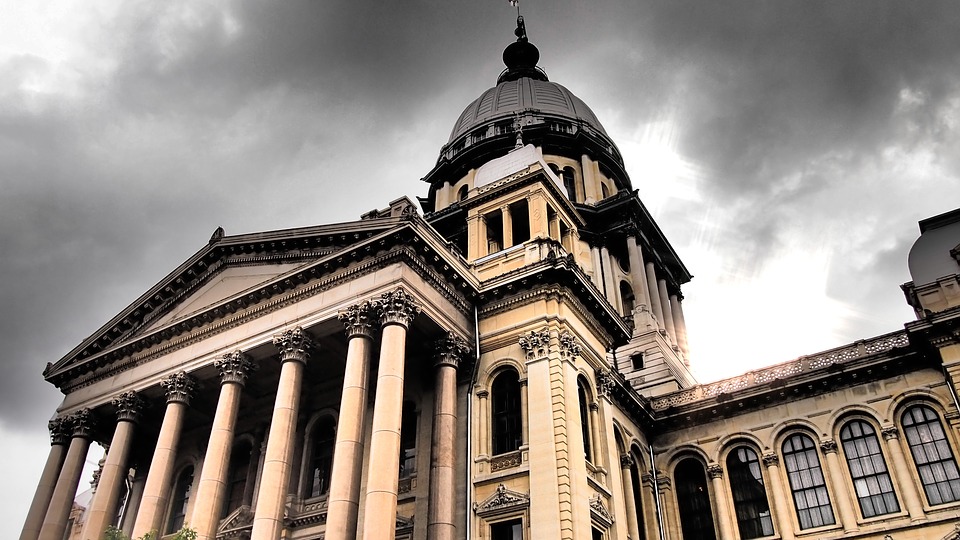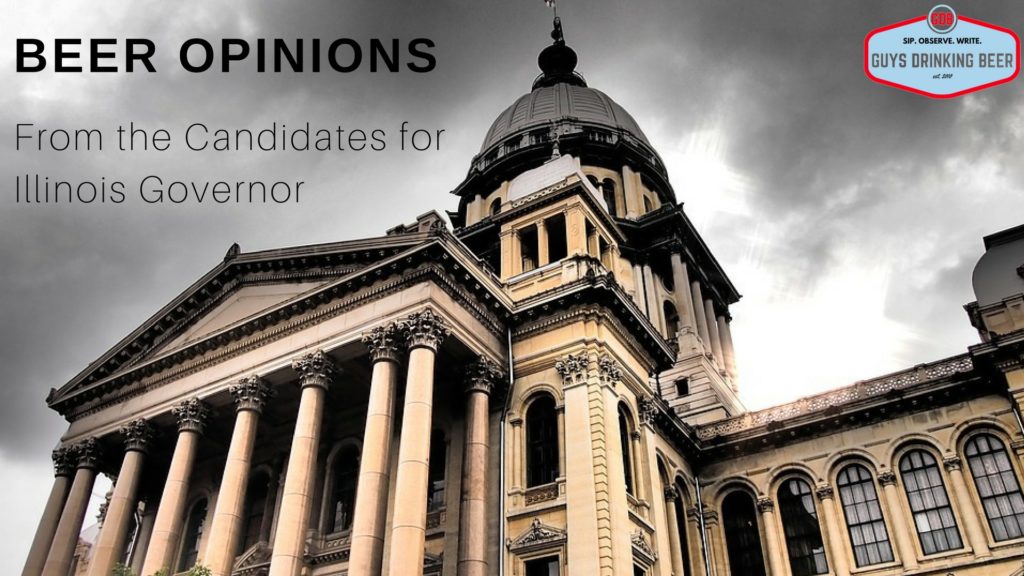Ameya Pawar is a candidate running for Illinois Governor. The following are the responses from his team regarding beer and alcohol legislation in Illinois, presented verbatim.
You can view the responses we’ve collected from all gubernatorial candidates here.
1a) A main topic of conversation in the beer world last year has been about whether or not bars and restaurants should have the freedom to fill growlers and crowlers (bottles and cans filled from draft lines for takeaway consumption). Where do you stand on this subject? Should restaurants and bars be allowed to do so? Or should that right remain solely with breweries and their taprooms?
More and more people recently are buying beer to drink at home, so I would support efforts by bars and restaurants to allow growlers and crowlers to be filled on premise for takeaway consumption, as long as certain safeguards exist to protect the consumer and help craft breweries. Allowing a consumer to fill growlers and crowlers at a restaurant or bar should be considered as a way to help smaller breweries compete with major beer manufacturers, while also helping restaurants and bars.
1b) Have you ever had a growler filled at a brewery? If so, where and what was it?
Sadly, I haven’t had a growler filled at a brewery yet. But there are a lot of great breweries in the 47th Ward, so I’m sure I won’t have a problem finding one or two to sample one night when I’m not spending time with family, doing my job as alderman or on the campaign trail. So, maybe election night?
2) When you take office, it will have been nearly four years since the governor signed the Craft Brewers License into law. At the time, it was predicted that the state would see massive small business growth – in the form of new breweries – at least partly as a result of this bill. Clearly, that has come true by leaps and bounds across the entire state.
But with that growth has come many more questions, including whether a brewer can own a distributor, whether the three-tier system is an outdated structure and more. What is your position on craft brewers self-distributing and at what point should they no longer be considered “craft” and be held to the same rules as the larger brewing companies?
The Craft Brewers License provided a necessary increase in barrel production for craft brewers while giving them the means to self-distribute. As major beer manufacturers continue to buy out smaller craft breweries to then market and distribute these brews as craft beers in local establishments, we need to be looking for ways to support craft breweries with their specific distribution needs. Supporting craft breweries is important because it puts more money in the local economy instead of in the pockets of major national beer manufacturers. So, the decision to self-distribute should be left up to the individual craft brewery. What works for one brewery, who might be able to hire a distribution company, may not be feasible for or desired by all breweries. In this spirit, we need to prevent major beer manufacturers with large ownership stakes in distribution houses from subverting the three-tiered system so they get more of a share of the distribution model and snuff out smaller breweries.
3) Do you believe the three-tier system is antiquated or is it needed to ensure safety among consumers and competition among manufacturers?
This is really a complicated issue. For one, there are a lot more manufacturers and retailers than distributors. And, for example, the Associated Beer Distributors of Illinois maintains a lot of control over distribution in order to protect craft breweries, specifically. However, as mentioned above, craft brewers have the choice to self-distribute up to a much larger amount, and that’s a good thing. Pipeworks Brewing, for example, self-distributes in Illinois but they use distributors to place their beer outside of the state as a cost-effective means to share their wares. However, if their business continues to grow they would have to enter into the three-tiered model because they are limited in the amount they can actually brew. So, any decision to be made on updating the three-tiered model must consider the financial benefits for both consumers and small businesses.
4) Do you agree with Governor Rauner’s signing of legislation reinstituting the Happy Hour in Illinois?
Amending the Liquor Control Act to reinstate happy hours in Illinois has been helpful for local bars and restaurants, who have seen a boost in business during non-peak times as a result. As price-conscious consumers increasingly buy craft beers to drink at home rather than in bars and restaurants, it’s important that we are looking at ways to soften the blow for consumers and local businesses. This happy hour law does that, in my view, because it gives businesses more flexibility in promotions and marketing which then draws people into their establishments.
5) As state and local governments look to revenue sources to balance their budgets, we often hear about the alcohol tax as an option. Illinois already has among the highest alcohol taxes in the Midwest. Our tax on beer is double what it is in Indiana and nearly quadruple what it is in Wisconsin. Is an even higher tax on beer, wine or spirits an option if you are governor?
One of the arguments for reinstating the happy hour laws in Illinois was that it would bring in more revenue for local and state governments, although that revenue hasn’t really been seen yet. But we shouldn’t be relying on regressive taxes, like the alcohol tax, as primary revenue sources for the state. That’s why we need to shift to a progressive tax structure, which taxes income based on the ability to pay. It would bring in more overall revenue for the state while reducing the burden on lower and middle-class families. We also have to close corporate loopholes that incentivizes big businesses to move or stay in Illinois without paying taxes, which can be used to invest in communities around the state and promote tourism, which would drive economic growth.
5) Finally, What is your favorite beer, and what is your favorite beer not manufactured in Illinois?
As I mentioned in my previous interview (ed note: four years ago!), I love craft beer. Especially IPAs. But I try not to pick favorites.
You can learn more about the Ameya Pawar campaign here.

